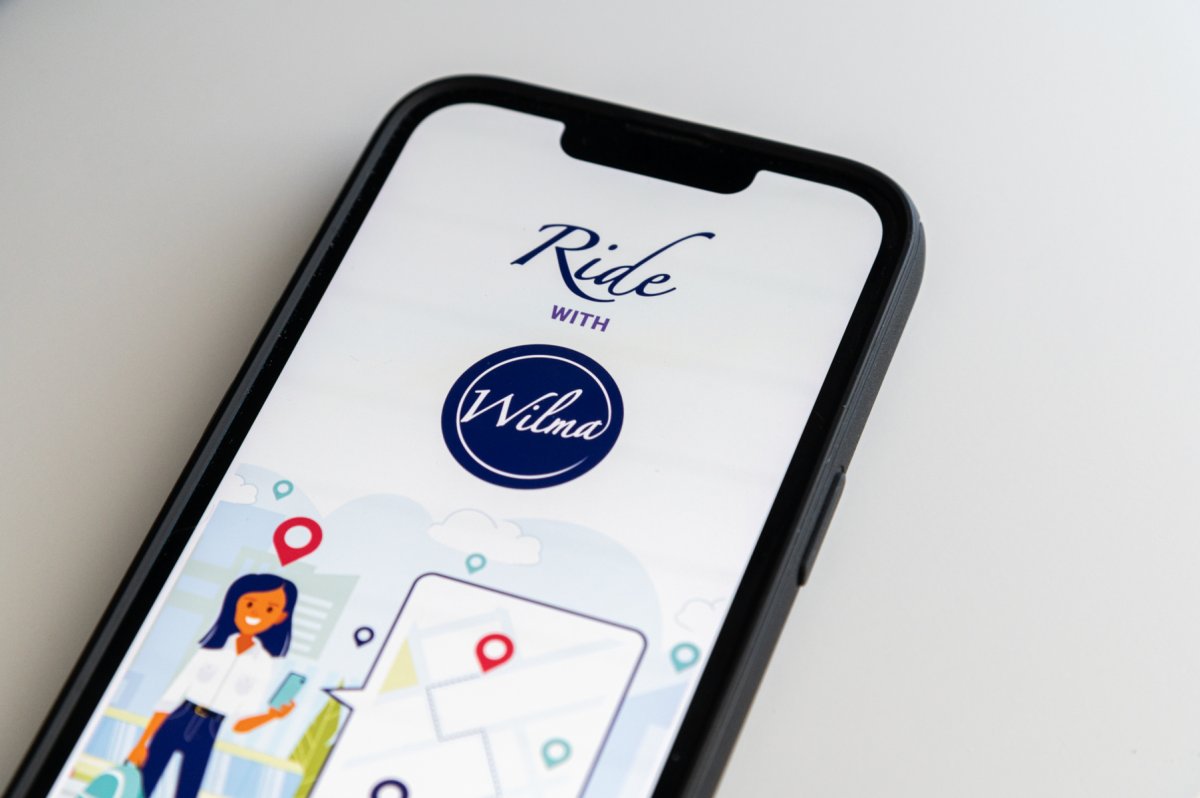Following a successful test launch in London, Ont., last summer, a ride-hailing service targeting female and gender-diverse riders and drivers is set to expand to the Greater Toronto Area later this year.

The women-driving-women membership service Wilma launched in the Forest City in July 2022 with the aim of providing a safer ride-sharing alternative for women.
After test-driving the app in London, Wilma is set to be launched in June in Toronto at the Collision technology conference, and there are plans for it to be in dozens of cities across North America within five years, said Terri Phipps, Wilma CEO and co-founder.
“Wilma was introduced more as a whisper last year to test our assumptions, and to build out our driver and rider interest and our stakeholder engagement with the city and with the universities,” Phipps said Wednesday on 980 CFPL’s The Morning Show with Devon Peacock.
“Startup life is an exhilarating environment. Everyone on our team is dedicated because we already know this is a critical service for Wilma and for London, so we’re excited to be up and running now and ready to get the year going.”
One of the catalysts for Wilma was a terrifying ride involving a male ride-share driver that one of Phipps’s friends had experienced in Houston, Texas.
Phipps recounted her friend’s experience to Global News last year, saying the driver had driven her friend in the opposite direction of her hotel, and at one point was travelling 90 miles per hour down the highway.

It was only after her friend devised a fake background — that she worked at a high-tech security firm, and that her boss, waiting at the hotel, had enabled tracking and voice recognition on her phone — that the driver beelined to the hotel after taking her on a 45-minute detour.
An Angus Reid survey commissioned by Wilma ahead of its launch last year found that four in five Canadian women said they would purchase a women-only ride-hailing service if it were offered in their city.
Thousands of people have reported being sexually assaulted during ride-sharing rides over the last several years. Uber reported last year that roughly 2,800 sexual assaults had been reported during trips in the U.S. in 2019, with 998 in 2020, a dip likely attributable to the COVID-19 pandemic.
- Trudeau tight-lipped on potential U.S. TikTok ban as key bill passes
- Canadian man dies during Texas Ironman event. Her widow wants answers as to why
- Hundreds mourn 16-year-old Halifax homicide victim: ‘The youth are feeling it’
- On the ‘frontline’: Toronto-area residents hiring security firms to fight auto theft
The ride-sharing company says the incidents make up about 0.00020 per cent of the 1.4 billion rides and 0.00015 per cent of the 650 million rides it recorded in the U.S. in 2019 and 2020, respectively.
Of the incidents recorded in 2019 and 2020, 56 per cent of the accused were drivers, while 43 per cent were riders and one per cent a third party. Passengers accounted for 61 per cent of sexual assault survivors in the reported incidents, with drivers accounting for 39 per cent.
In incidents involving non-consensual penetration, at least 81 per cent of survivors were women, Uber’s safety report says.
“I don’t think anyone’s surprised this is needed, but maybe more surprised it took so long to solve this,” Phipps said Wednesday.
“We’ve been pleasantly surprised at the interest that so many women have had in driving for us, I guess that’s probably the biggest surprise.”
The local response to the app has been positive, Phipps says, with riders knowing that they’ll have a female driver every time, and that they’ll pay less per ride without an industry-standard booking fee through a monthly, quarterly or annual membership.
“Every ride is going to be cheaper by at least $3-5. But I also think that women are happy that they can allow other women to come into the gig economy as drivers, because the drivers get to keep 85 per cent of every fare plus their tips,” Phipps said.
“We like to say it’s a bit of a symbiotic relationship…. It’s almost like women linking arms to create a safer environment and also good living wages.”
Men are able to ride in a Wilma vehicle if they are joined by a female member. Phipps says they’ve had boyfriends, fathers and husbands gifting memberships to the women in their lives.
When it launches in Toronto, Wilma will be at least the second women-oriented ride-sharing service to launch in the city in the last several years following the launch of DriveHER in 2018. The app has since closed down, and its social media pages have not been updated since 2020.
More information about Wilma can be found on its website.








Comments